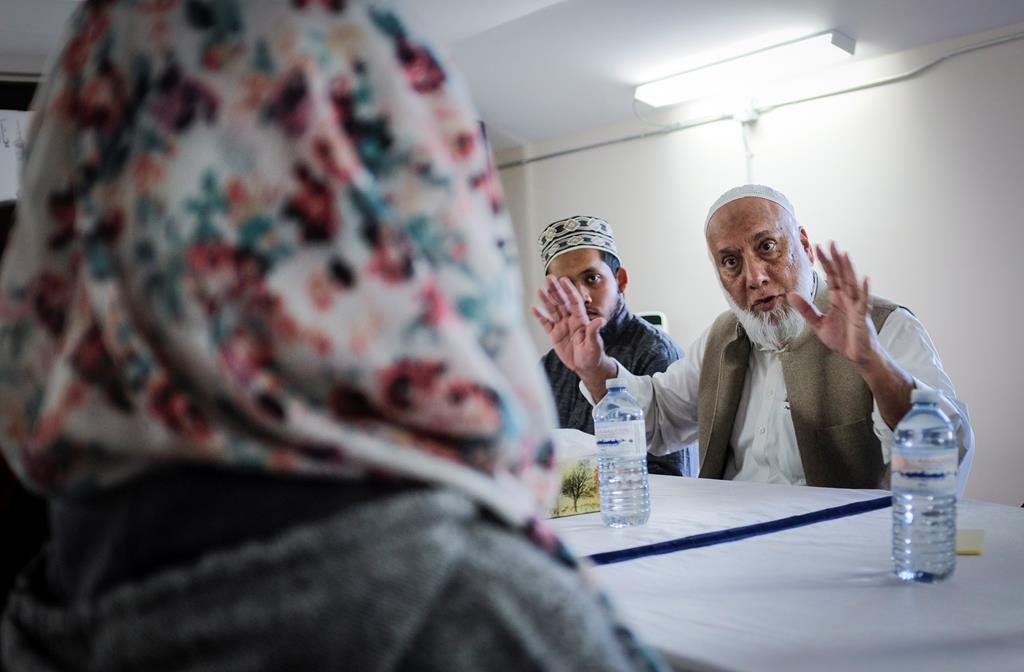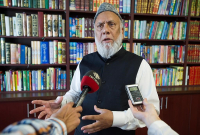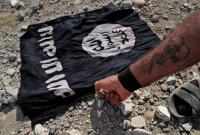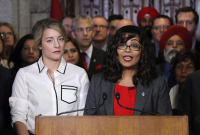Support strong Canadian climate journalism for 2025
The tall, slim teenager asks a question that's on the minds of many of the young people gathered around the cloth-covered tables in a small meeting room at a mosque in northeast Calgary.
"If someone from ISIS or ISIL approaches you, how would you respond to them, so that you're not attacked any further?" wonders Zubair Tariq, 16.
"If they approach, you should be smart enough to know that ISIL/ISIS is very big criminals in the eyes of Islam," answers Imam Syed Soharwardy, founder of Muslims Against Terrorism and the Islamic Supreme Council of Canada.
"These people reach out through the internet. These people reach out through a local community. Understand this is not somebody who is a nice Muslim or a good Muslim or a true Muslim. This is someone who is disguised as a Muslim. ISIL is a disguised Muslim.
"They say they are good Muslims but to us they are a bunch of thugs and criminals," he continues. "They are terrorists."
Soharwardy met recently with 30 Muslim youth at the Jamia Masjid Gunbad-e-Khizra mosque. It was one of several meetings he does on a regular basis to prevent the radicalization of Canadian Muslim youth.
Soharwardy decided to call another meeting after an attack earlier this month that injured a police officer and civilians in Edmonton. A man stabbed an officer doing traffic control outside a football game and then crashed a cube van into pedestrians downtown. Five people were injured. Police say they seized an Islamic State flag as evidence.
Tariq says he hasn't been contacted directly by anyone seeking to recruit young Canadian Muslims, but he's worried.
"One of my friends was approached ... and he's the same age as me," the teen says. "It's scary. If someone approaches you, you don't know how to respond properly unless you talk to your peers."
Teen Hassaan Rizvi says recruitment by the Islamic State is happening through social media.
"We were sitting in my math class and two of my friends received a WhatsApp link," says Rizvi, referring to the popular mobile messaging program. "When opened, it was for recruitment for ISIS. It had the flag and said we are recruiting.
"I said, 'This is not something good so we should close it.' This did happen. They are still recruiting."
Soharwardy turns the conversation to the Edmonton attack.
"When you hear ... a police officer hurt and an ISIS flag found, what do you feel?" Soharwardy asks.
"Angry," says one young man.
"Embarrassed," says another.
A report last year on the terrorist threat in Canada said that at the start of 2014 there were more than 130 Canadians who were abroad and suspected of terror-related activities. By the end of 2015, the number had grown to about 180 and the government knew of about 60 extremist who had returned to Canada.
Some of the students at the meeting express anger at the backlash they endure every time a terrorist attack happens anywhere in the world.
"I don't understand why the word terrorist or terrorism is stitched to the word Muslim or the name of Islam. Terrorism itself is just an attack on anyone," says Shahwali Hameed.
"Terrorism has no religion."
Aysha Ali believes a lack of understanding causes people to believe all Muslims are terrorists every time an attack occurs.
"It definitely gets worse. They wouldn't blame it on Muslims if it just happened once, but it's happened several times where people like ISIS and ISIL do it in the name of Islam."
Ibrahim Khan says there appears to be a double standard. He points out nobody is calling the perpetrator in the Las Vegas mass shooting a terrorist.
"He's either mentally damaged or they just call him a shooter. No one calls him a terrorist, because he doesn't have a long beard."
Soharwardy says he believes there are still recruiters and sympathizers Islamic State sympathizers working in Canada and he suggests that will continue until their financial pipeline dries up.
He tells the students that anyone who promotes hatred or committing violent acts is not following the Muslim faith.
"If you see anybody make sure you report to your parents, your teacher, to me," he says.
"Let us know right away, because we need to defend ourselves and ... remain loyal, faithful, law-abiding citizens of this country."





Comments